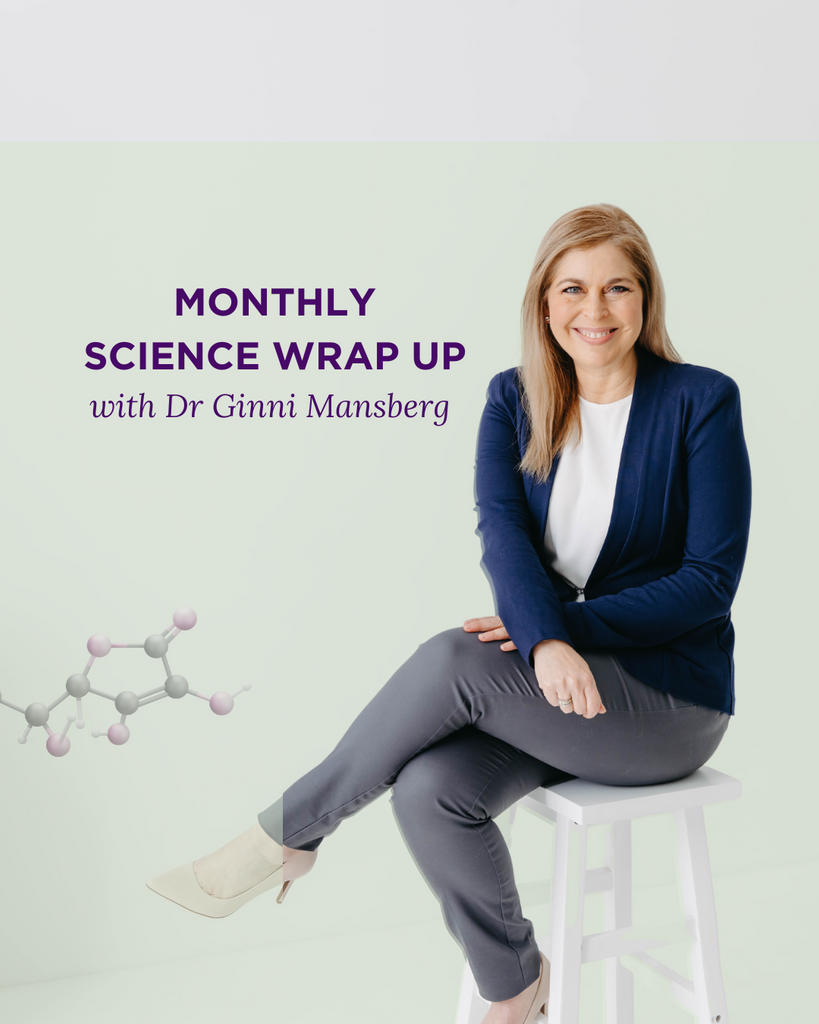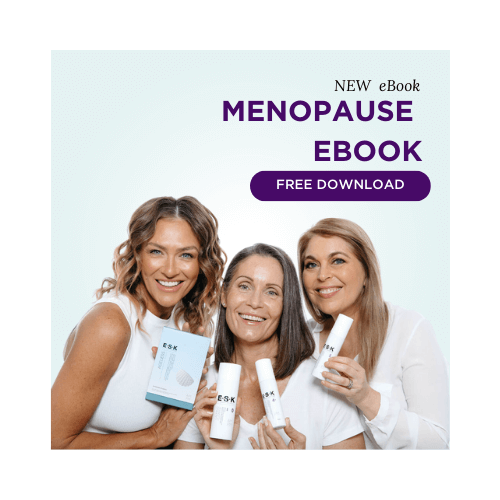
Science Hub
September 2024 Science Wrap Up
29 September 2024
Dr Ginni Mansberg
Spring has sprung here in Australia, while our friends in the US and the UK are embracing fall and autumn respectively. September has been the most incredible month for me personally. It kicked off basking in the glory of our newly minted hormonal hub- the result of a year’s work from Dr Anne and I preparing loads of blogs, e-books and video content and reading MOUNTAINS of studies. My basking was short-lived before I hopped on a plane to New York for my eldest son’s weddings. Fellow mums of adult kids can relate. It is indescribable joy. From there we headed back to the UK for meetings, more events PLUS two skin conventions. At both conferences I spoke about menopause and skin to aesthetic doctors, nurses and aestheticians. We’ll be back at the start of October! But even while I’m away I’ve been devouring the medical journals… Here is the September Science wrap!
Biotin supplements for hair? The dodgy claims make me tear my hair out…
Around 40% of women have some female pattern hair loss by the age of 50.So I was super excited to read a meta-analysis of studies published in the Journal of Clinical Aesthetic Dermatology which took a look at the widespread belief that biotin, a popular hair supplement, effectively promotes hair growth. Despite its popularity, the study found basically no scientific support for these claims. After conducting a literature review, only three relevant studies met the inclusion criteria. The highest quality study, a double-blind, placebo-controlled trial, showed no significant difference in hair growth between biotin and placebo. The other two studies were poor quality studies that the authors said were susceptible to biases, with neither showing strong evidence favouring biotin. The review concluded that while biotin may benefit those with deficiencies (which is found in 1 in 137401 people), there isn’t any high-quality evidence to support its use as a hair growth supplement. The study also highlighted the potential risks of biotin supplementation, including interference with some laboratory tests that aren’t done commonly. Overall, the authors called for more rigorous, randomised-controlled studies to look at biotin’s efficacy in hair growth.
Rosacea in Asian skin- don’t miss it!
A new study published in the Journal of Dermatology, took a look at rosacea in Asian skin specifically. Key symptoms include facial redness that hangs around, facial swelling, pimples, prominent blood vessels, know as telangiectasia, and flushing that comes and goes. Like rosacea in European skin, Asian sufferers of rosacea have the same mite infestation, and triggers including temperature changes, sunlight, stress, hot drinks and spicy foods. All of these interact with which your genes. The study highlights the roles of the skin’s microbiome, ultraviolet radiation, abnormal nerve sensations, and changes in the blood vessels supplying the skin in rosacea development.
Particularly in East Asian people, rosacea may be exacerbated by factors like airborne pollen, which could act as a trigger – while that’s very rare in European skin! The authors of the study reminded doctors of not being biased when assessing a patient with coloured skin, especially in East Asians, where redness may be less obvious. Doctors are advised to check the blood vessels by looking closely and also to ask about sensory symptoms like sensitivity and a burning feeling. If we miss rosacea we can give people the wrong treatments and skincare that could make rosacea wrong.
Oestrogen and the skin- a super hormone!
Please forgive me if my obsession with hormones and the skin is slightly annoying but a new(ish) review article published in the Journal Frontiers of Physiology explaining just how freaking amazing oestrogen is for skin is too good not to share! The article goes through details about exactly HOW oestrogen acts as a wound healing and anti-inflammatory hormone in the skin, how it maintains the skin barrier and how it enhances skin hydration plus how it maintains and builds collagen.
Menopause hormone therapy (MHT) works wonders for menopausal symptoms and bone strength and it looks like it is amazing for skin health? The exciting news? Researchers are now developing new skin-applied oestrogen or oestrogen-like treatments that help prevent skin ageing and even heal wounds - think targeted skin benefits without the need to go on full blown MHT! We’re not there yet, the study authors said but scientists are beavering away looking for solutions!
See you next month!

